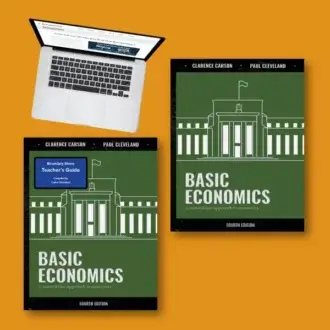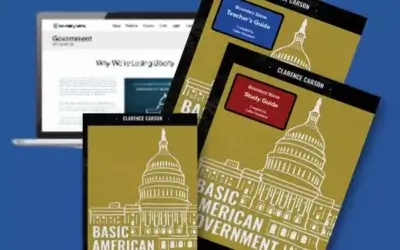When I speak to various audiences around the country I have often asked them at the outset how many people believe that we have some serious economic problems in our nation. Invariably nearly everyone will raise his or her hand. There is at least the sense or feeling that something has gone terribly wrong in our country. However, when people are asked to identify the source of the problem there is widespread disagreement.
I personally agree with the popular belief that our nation faces serious economic problems that will likely plague us for years to come. Moreover, I believe that the widespread disagreement as to the source of our troubles is due to an equally widespread miseducation. I have spent my career aiming at correcting the many myths that I was taught in our educational system. Along the way I have been blessed to have some excellent academic mentors that have aided me in this process. One important mentor was a man by the name of Clarence B. Carson. Dr. Carson was a historian by training and his many books and articles were very useful in correcting my understanding of many things. With this as a starting point I’ve also researched and written numerous books on my own.
While it would be impossible to deal with every reason for our current economic problems, we could examine one area of policy to understand its failure. Based on the knowledge I have gained over the years I would like for us to consider whether welfare policy in this country is broken. I believe that it is and that the reason why it is can be clearly understood if the right kind of examination of it is made. Therefore, what I would like to do is to consider that subject in a series of blogs.
We must first consider what poverty is. After all, it is our concern for the poor that has resulted in the nation’s current welfare programs. The question is, do they work? The next thing that we need to consider is the goal of our efforts to help the poor. Unless we have the right goal, we will never reach it. Then we can turn our attention to programs that work and programs that don’t. Finally, we can consider the platforms of the Republican and Democrat parties to see if they are likely to offer any progress in actually addressing poverty in America.







0 Comments